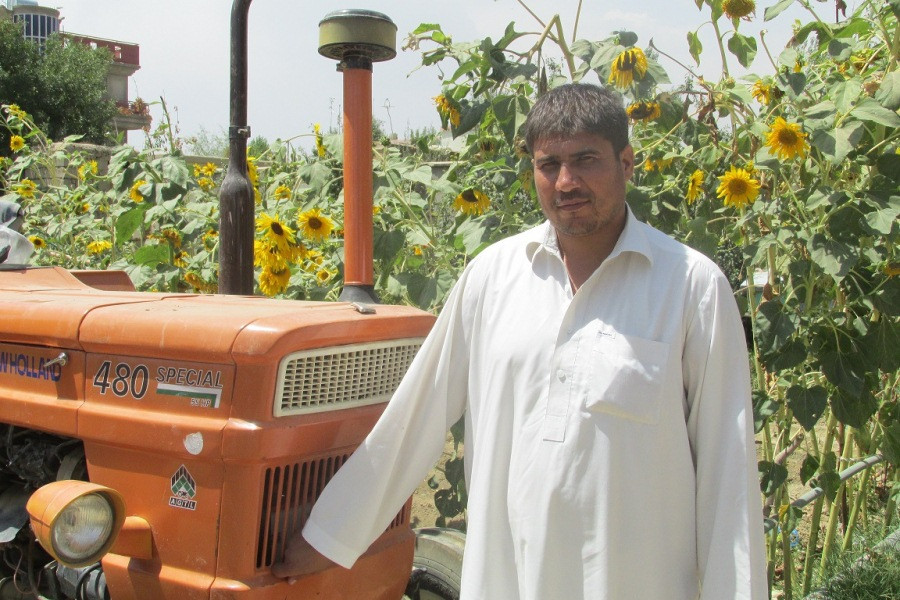Our goal is to link the education with practice, says the director of the Afghan agricultural school
Published: Oct 8, 2014 Reading time: 3 minutes Share: Share an articleAt first glance, Secondary Agricultural School in Chahar Asyabu near Kabul looks wildly. Students from poor rural families are stamped on chairs in the hallway and their loud reading fades in the ongoing construction noise. First floor of the building, where the school is located, is currently undergoing reconstruction. Nevertheless, this place bristles with effort to learn something.

Director Abdul Aziz is the motive force of the changes which the school is going through. “We try to provide students with practical skills. For example, we teach them how to use incubators for breeding chickens, to grow edible mushrooms, or beekeeping. Even cultivation of ornamental flowers can make some profit for them, as the markets in Kabul are close. In addition, students can immediately take advantage of all the knowledge in practice, because the families of most of them are engaged in agriculture,” says Aziz.
The school earns extra money by selling mushrooms
The truth is that the school in Chahar Asyabu is among those Afghan agricultural secondary schools which are the most active in development of practical teaching. In other educational institutions, the model of teaching memorization of theoretical knowledge is still the most widely used. This approach, however, does not help the farming families improve production so that they could sell their crops with profit sufficient to pay for the education of their children.
“Grown vegetables, honey and mushrooms are sold by the students on the market in the Chahar Asyabu,” explains director Aziz his own business plan. “One kilo mushrooms costs 450 Afghani (about 8 dollars). Mushrooms are rare in our country and people sometimes buy them instead of meat. Boiled mushrooms with vegetables are a favorite dish that traditionally hospitable Afghans offer their guests at Friday's visits,” says Aziz.
Earned money are spend on buying new spores for growing mushrooms, sugar for bees, seeds and seedlings for the school garden. People in Need supported the production of mushrooms and honey in school in the form of micro-grants, but the long-term operation of these activities must be funded from the school’s own production.
#~gallery-884~#
No go without the help of the Ministry
The school was founded in 2012 at the request of local people and is attended by students from Logar province, where Czech soldiers operated until recently. “At the beginning we had nothing. Gradually we managed to provide school with furniture, textbooks, basic laboratory equipment and a small library. People in Need participated in the school development significantly. We collect some money from families of students and local people, we have a small saving box in the school. But without the help of ministries and organizations we cannot develop the school further. Currently, our greatest need is a new school building. We received 6 jeriba of land that is not far away from the Ministry. To be able to use it, we need to build a new building there and to move the whole school,” says the director.
Despite the cramped conditions and lack of resources, the school director Aziz may be a role model for others in many ways. That's why the recently held a two-day workshop for teachers. Together they built a greenhouse, compost, prepared seedlings of trees, flower beds for vegetables and saffron, and they could also learn the basics of mushroom cultivation and beekeeping. Active teachers will be encouraged to develop these activities in their schools.
